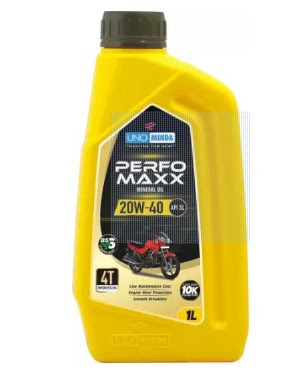views

Choosing the right Bike engine oil for you is crucial for its performance and longevity. With various options available in the market, finding the ideal one can be overwhelming. However, with the right knowledge and considerations, you can ensure that your bike runs smoothly and efficiently. In this guide, we'll delve into the essential factors to consider when selecting the perfect engine oil for your motorcycle.
1. Understanding Viscosity:
Viscosity refers to the oil's resistance to flow. It's typically denoted by a numerical value followed by "W" (winter) and another value, such as 10W-40. The first number represents the oil's viscosity in cold temperatures, while the second number represents viscosity at operating temperatures. For most bikes, a 10W-40 or 20W-50 oil works well across a range of temperatures.
2. Check the Manufacturer’s Recommendations:
Your motorcycle's manufacturer provides specific guidelines regarding the type and viscosity of engine oil suitable for your bike. Consult your owner's manual or the manufacturer's website to find the recommended oil specifications. Adhering to these recommendations ensures optimal engine performance and longevity.
3. Consider the Type of Riding:
The type of riding you do influences the type of engine oil you should choose. For instance, if you frequently ride in harsh conditions or engage in high-performance riding, you may require a synthetic oil with enhanced lubrication properties and heat resistance. On the other hand, for casual commuting or light riding, a conventional oil may suffice.
4. Quality Matters:
Opt for high-quality engine oils from reputable brands. Quality oils offer better protection against engine wear, oxidation, and corrosion. UNO MINDA, known for its quality automotive products, offers a range of engine oils designed to meet the specific requirements of different motorcycles. Ensure that the oil you choose meets or exceeds industry standards and certifications.
5. Consider Additives:
Some engine oils come with additives that offer additional benefits such as improved fuel efficiency, enhanced engine cleanliness, and better performance under extreme conditions. However, be cautious of additives that claim miraculous results without credible evidence.
6. Evaluate the Oil’s Performance:
Look for engine oils that offer superior performance in terms of viscosity stability, shear resistance, and thermal breakdown. These properties ensure that the oil maintains its lubricating properties even under demanding conditions, thus protecting your engine against wear and tear.
7. Check for Compatibility:
Ensure that the engine oil you choose is compatible with your bike's engine components, including seals, gaskets, and materials used in construction. Using incompatible oils can lead to leaks, premature wear, and damage to engine components.
8. Consider Environmental Factors:
Environmental factors such as temperature extremes, humidity, and altitude can impact the performance of engine oil. Choose an oil viscosity that suits the prevailing environmental conditions in your area to ensure optimal engine protection and performance.
9. Change Interval Recommendations:
Different engine oils have varying change intervals based on their formulation and performance characteristics. Follow the manufacturer's recommendations regarding oil change intervals to maintain optimal engine health and performance.
10. Monitor Oil Consumption:
Keep an eye on your bike's oil consumption rate. Excessive oil consumption may indicate issues with the engine or oil quality. If you notice abnormal oil consumption, consult a mechanic to diagnose and address the underlying problem.
In Conclusion, selecting the right engine oil for your motorcycle is essential for ensuring optimal performance, longevity, and reliability. Consider factors such as viscosity, manufacturer recommendations, riding conditions, oil quality, additives, performance, compatibility, environmental factors, change intervals, and oil consumption when making your decision. By choosing the right engine oil, such as those offered by UNO MINDA, and adhering to proper maintenance practices, you can keep your bike running smoothly for miles to come.





















![ELD Compliance Software Market Share Forecast Report [2032]](https://s3.us-west-2.amazonaws.com/timessquarereporter.com/upload/media/posts/2024-09/11/eld-compliance-software-market-share-forecast-report-2032_1726054354-s.jpg)
Comments
0 comment